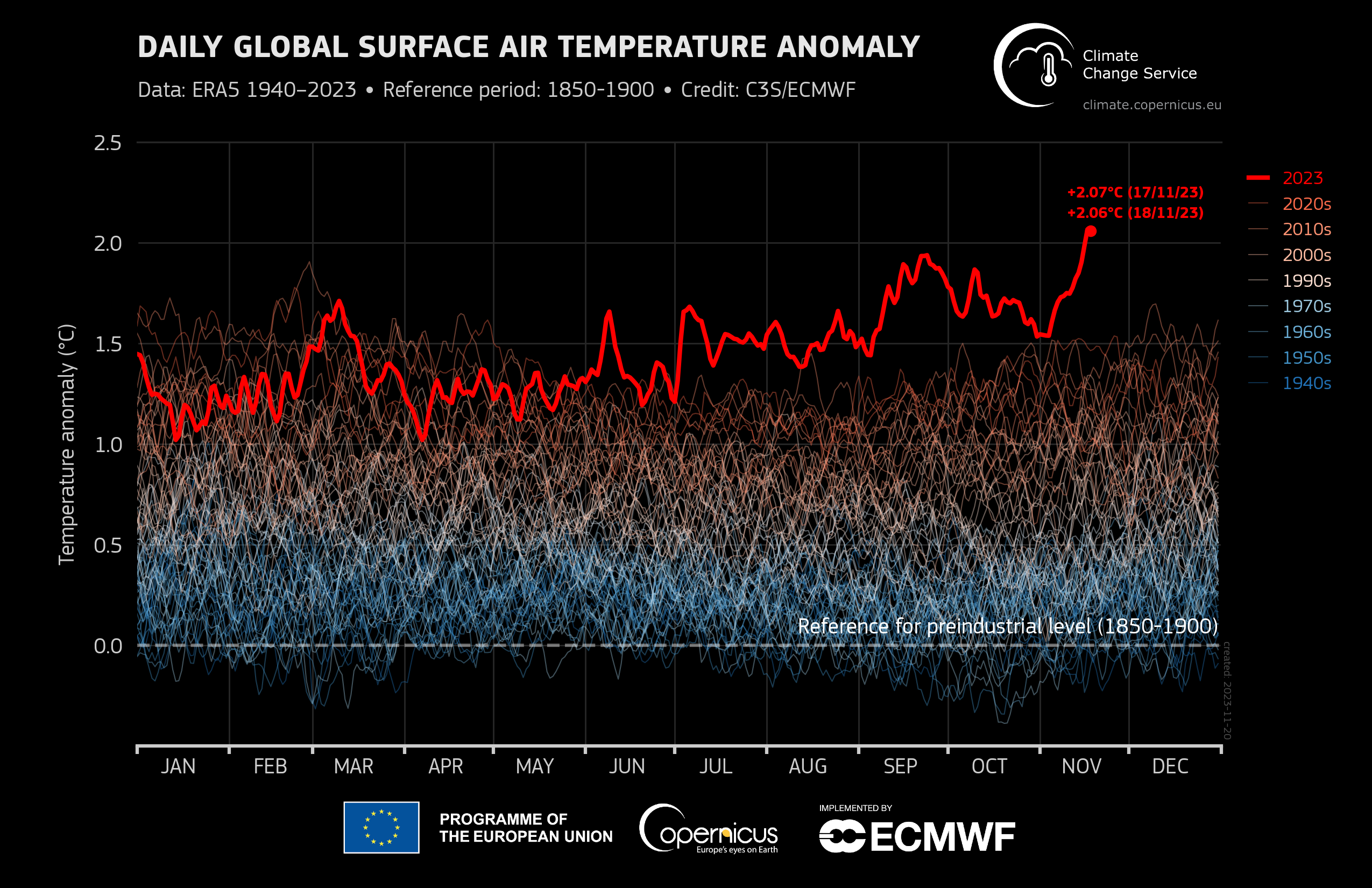
Global temperature briefly exceeds 2 C above pre-industrial average
Dec. 2 (ZFJ) — Earth’s temperature exceeded 2 degrees Celsius above pre-industrial levels on Nov. 17-18, according to the European Union’s Copernicus Climate Change Service (C3S).
Nov. 17 marked the first day in the ERA5 dataset, the European Centre for Medium Range Weather Forecasts’ climate record, that global temperatures exceeded 2 C above the average temperature before the extensive use of fossil fuels.
Nov. 17 exceeded the 1850-1900 average by 2.
